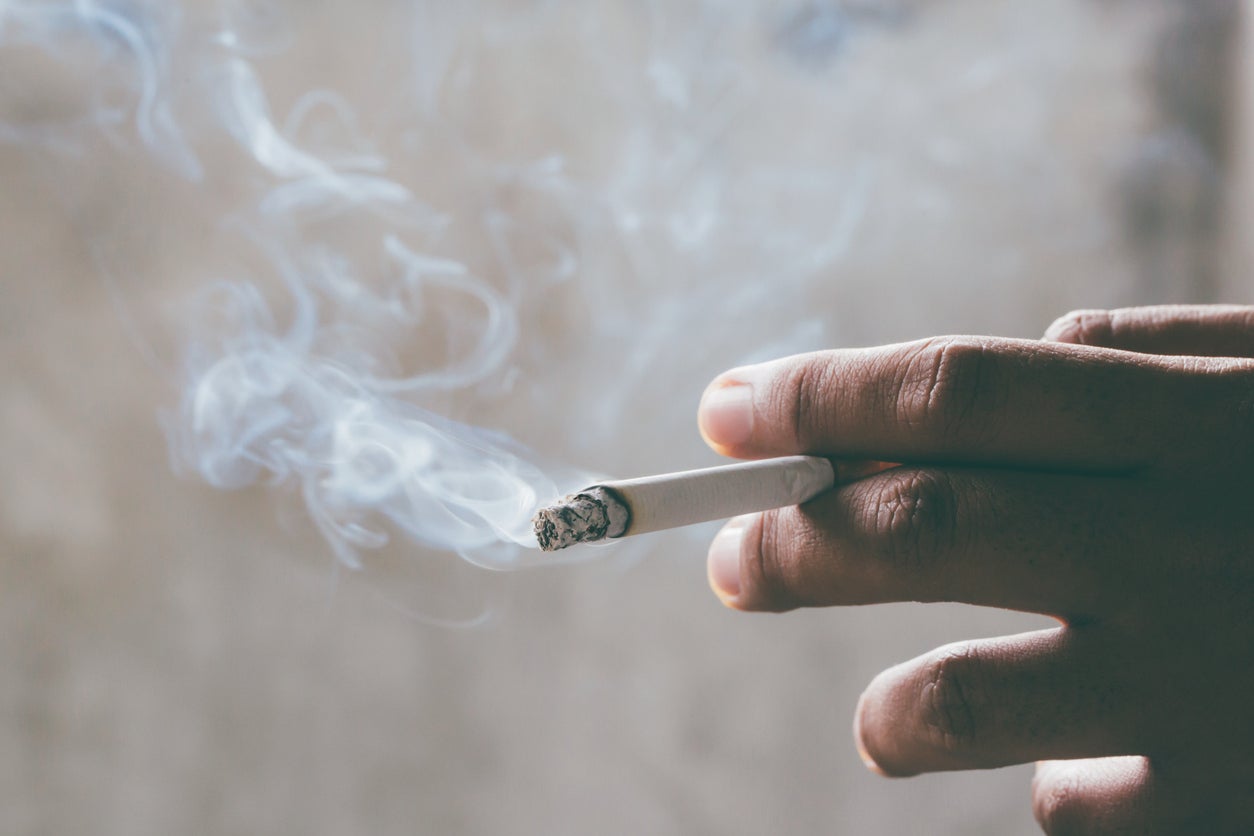Cigarette sales have hit 20 year record – why is the pandemic making us smoke?
A lack of social support plus our need to be in control are reasons why we lit up during the pandemic, say experts. Jade Bremner writes


Some of us took up new hobbies, got fit, watched endless boxsets on Netflix and perfected our bread baking during the pandemic. But old habits die hard, it turns out, as many of us indulged in our tobacco addictions – according to new sales data that shows cigarette sales were at a 20-year record high in 2020.
The Federal Trade Commission's new Cigarette Report, conducted with data from major tobacco companies Reynolds American, Altria Group, ITG Holdings USA and Vector Group Ltd, shows that sales of cigarettes were up 0.4 per cent - 203.7 billion cigarettes from 202.9 billion in 2019.
Some of the increased sales could be down to price reductions but many experts are suggesting the pandemic did have an effect.
Bulk-buying cigarettes around lockdowns was a trend, meanwhile, there was a distinct lack of health services available during restrictions, including addiction facilities.
The figures do not come as a shock to many health professionals.
"I'm not surprised," said Dr Damir S. Utrzan, to The Independent, who is the manager of Mental Health Services at the addiction treatment and advocacy organisation Hazelden Betty Ford Foundation. There are behavioural elements of control in the act of smoking, explains Utrzan. "People are looking for any way they can feel like they have control, part of it is behavioural so they know they can light up a cigarette and they know they can feel better.”
Then there is the physical release from smoking, the chemical effects of cigarettes. As nicotine enters the bloodstream it travels to the brain, where it releases neurotransmitters including dopamine – there is a short-lived chemical reward, which some say curbs stress. “In the short term they do reduce anxiety immediately,” explains Utrzan. “In the long term though, the way the chemicals are released in the body following inhalation of nicotine actually causes more anxiety and feeds back into an increased desire for nicotine.”
Tobacco use rates have generally decreased over time but 2020 marks a reversal of a long-running downward trend. According to Don Burke, senior vice president at Management Science Associates in Pittsburgh, "total nicotine consumption in the US was up 3.4 per cent", he told CSP, "clearly the pandemic had an impact".
Tobacco taxes and smoking bans in public places contributed to the decline in smoking up to 2019, but with venues closed there were fewer social engagements allowing for more “tobacco-use occasions," Altria CEO Billy Gifford told investors, reported The Washington Post. Gifford also suggested more time and money from stimulus checks could have been a driving factor in increased cigarettes sales in 2020.
There are studies being conducted into impacts of the pandemic on support networks, and addiction support groups, as experts say isolation creates more opportunities to satisfy our addictions. "We've seen people whose battle with addiction has amplified and increased, or they've relapsed, because of social isolation. I've talked to a lot of people who during the pandemic have felt alone, and depressed, and it feels like cigarettes are the only thing they have," says Utrzan.
Rebecca Smith, social work administrator at Buncombe Health and Human Services agrees. “The isolation, as well as the fear and anxiety around the impact to our ability to meet basic needs, I think those two things have dramatically impacted people’s mental health and their use of maladaptive coping strategies like substances to alleviate those stressors,” Smith told the Asheville Citizen Times.
However, the increased cigarette sales do not appear to be an ongoing trend, sales of traditional cigarettes were down by 4.9 per cent at Nielsen’s convenience store for a four week period ending on 27 March 2021. Analysts attribute this to a number of factors, including manufacturers raising their list prices and statewide stay at home orders being lifted.
Social interaction, smoking restrictions in public places, and quit-smoking services all help us curb the urge to light up. But there’s a heavy demand for addiction support nationwide, says Utrzan, “we've seen an influx of people reaching out for support, the demand for our care is far exceeding the availability of services." He advises using friends and family as a support network as much as possible.
Join our commenting forum
Join thought-provoking conversations, follow other Independent readers and see their replies
Comments
Bookmark popover
Removed from bookmarks